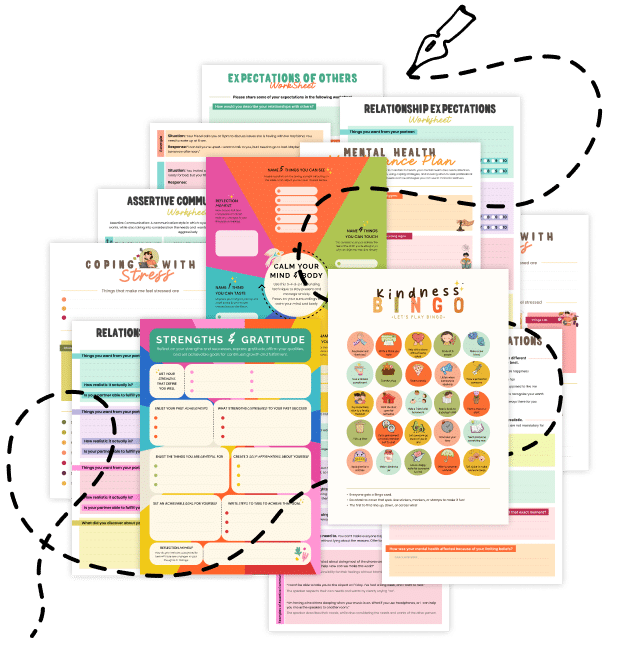20 Things About Cognitive Rehearsal for Conflict
Enhance your conflict resolution skills and emotional resilience by exploring these 20 insights on Cognitive Rehearsal for Conflict—what it is, why it matters, and how it can prepare you to handle challenging interactions with confidence and clarity. Discover how mentally practicing your responses to potential conflicts can lead to more effective communication and a calmer approach in difficult situations.
1. What Is Cognitive Rehearsal for Conflict?
It’s a mental exercise where you simulate potential conflict situations in your mind, practicing how to respond constructively before the actual event occurs.
2. Enhancing Preparedness
By envisioning conflict scenarios, you prepare yourself emotionally and cognitively, so you’re less likely to be caught off guard when challenges arise.
3. Reducing Emotional Reactivity
Cognitive rehearsal helps you manage your emotions by allowing you to practice responses that reduce impulsive or defensive reactions during conflict.
4. Improving Communication Skills
By rehearsing conversations, you can refine your language, tone, and body language, which leads to more effective and empathetic communication during disagreements.
5. Boosting Self-Confidence
Practicing conflict resolution in a safe, mental space increases your confidence in handling real-life conflicts.
6. Promoting Problem-Solving
It encourages you to consider multiple perspectives and potential solutions, leading to more creative and collaborative conflict resolution strategies.
7. A Tool for Stress Management
By mentally preparing for conflicts, you reduce anxiety and stress, making it easier to approach challenging interactions calmly.
8. Enhancing Empathy
Cognitive rehearsal can involve role-playing different viewpoints, which helps you understand others’ perspectives and fosters empathy.
9. Facilitating Self-Reflection
After mentally rehearsing, you can reflect on your responses, identify areas for improvement, and adjust your approach for future conflicts.
10. Part of Cognitive Behavioral Techniques
It is often used in cognitive behavioral therapy to help individuals develop healthier response patterns and reduce maladaptive behaviors in conflict situations.
11. Customizable for Various Scenarios
Whether it’s a workplace disagreement or a personal dispute, cognitive rehearsal can be tailored to simulate specific contexts and challenges.
12. Encouraging Proactive Conflict Resolution
By preparing responses in advance, you’re more likely to address issues before they escalate, leading to proactive rather than reactive conflict management.
13. Improving Listening Skills
Rehearsing conflict scenarios can remind you to practice active listening, ensuring that you understand the other party’s perspective during actual disagreements.
14. Reducing the Fear of Conflict
Regular practice can demystify conflict, making you less intimidated by the prospect of difficult conversations.
15. Enhancing Adaptability
Mentally exploring different outcomes helps you develop flexibility, so you can adjust your responses when the situation deviates from your expectations.
16. Aiding in Decision-Making
Cognitive rehearsal encourages you to weigh the pros and cons of various responses, leading to more thoughtful and effective decision-making during conflicts.
17. Reinforcing Positive Behaviors
By repeatedly practicing constructive responses, you can create new, healthier habits that replace old, unproductive patterns.
18. Combining with Role-Play
When possible, combining mental rehearsal with role-playing exercises with a partner or in a group can further enhance your conflict resolution skills.
19. Learning from Past Experiences
Reflect on previous conflicts during rehearsal to integrate lessons learned and avoid repeating the same mistakes.
20. Related Topics to Explore
- Metacognitive Monitoring – Enhance your awareness of your thought processes to refine conflict responses.
- Self-Distancing Techniques – Learn strategies to view conflicts objectively, reducing emotional bias.
- Perspective Flexing – Cultivate the ability to see situations from multiple angles during disputes.
- Emotional Granularity – Develop a nuanced understanding of your feelings in conflict situations.
- Adaptive Confidence – Build resilience and trust in your ability to navigate challenging interactions.
Quick Tips to Boost Your Cognitive Rehearsal for Conflict
- Visualize Specific Scenarios: Regularly imagine detailed conflict situations you might encounter, and plan how you’d like to respond.
- Practice Regularly: Incorporate short mental rehearsal sessions into your routine to build and reinforce effective conflict resolution strategies.
- Reflect on Your Reactions: After each rehearsal, note what felt effective and what could be improved, and adjust your approach accordingly.
- Combine with Mindfulness: Use mindfulness techniques before and after rehearsals to center yourself and reduce anxiety.
- Seek Feedback: Discuss your rehearsed strategies with a trusted friend or mentor to gain additional perspectives and refine your responses.
Embrace these insights and tips to harness the power of Cognitive Rehearsal for Conflict, empowering you to manage disputes more thoughtfully, communicate effectively, and foster a calmer, more resilient mindset in challenging situations!


